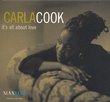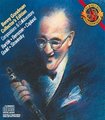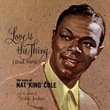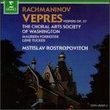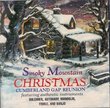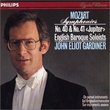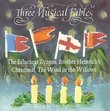| All Artists: Isaac Albeniz, Alicia De Larrocha Title: Iberia / Navarra / Suite Espanola Members Wishing: 0 Total Copies: 0 Label: London Original Release Date: 1/1/1988 Re-Release Date: 2/19/1988 Album Type: Import Genre: Classical Style: Number of Discs: 2 SwapaCD Credits: 2 UPCs: 0028941788726, 028941788726 |
Search - Isaac Albeniz, Alicia De Larrocha :: Iberia / Navarra / Suite Espanola
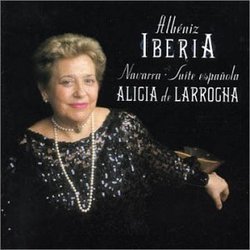 | Isaac Albeniz, Alicia De Larrocha Iberia / Navarra / Suite Espanola Genre: Classical
|
Larger Image |
CD DetailsSimilar CDsSimilarly Requested CDs
|
CD ReviewsOne of the greatest. Francisco Yanez Calvino | Santiago de Compostela, GALIZA, Spain. | 10/21/2005 (5 out of 5 stars) " As you can read in the other review, Alicia de Larrocha has recorded at least three times this piece, Albeniz's masterwork and one of the pinnacles of XXth Century music for piano. This is the last recording she has done and, in my opinion, the of all. I really thought Larrocha was going to record the cycle again for RCA, as she was re-recording many of her best-known piano pieces, but finally she had enough with this last DDD recording for Decca, which she hardly could make better. Some of the RCA recordings from the last decade show how De Larrocha is not able to play so strongly and so vivid like in this Decca recordings, which are the top of his career as concert player. The vision of her playing in the last decades, and I can include this Albeniz's recoding, is a really mature understanding of the scores and of the music's sense, very close to Larrocha in personality and soul, like Granados is too. Her playing in pieces like Evocation is full of mistery and mood, a really window to look into a world she is going to recreate in the next pieces, like the marvellous El Corpus Christi en Sevilla, in which Larrocha sings the Spanish popular tune "La Tarara" of the melody with her hands better than any other player, like if she were going to her childhood again. Some people prefer the most fresh, hard and vivid interpretation recorded by EMI, or even the first ADD recording for Decca, but I can say that the poetry, knowledge and understanding of the work is on her top in this recording. You have great technique, marvellous rubato, outstanding draw of the melodies, the better control of silence and echoes played any time by Larrocha... A version of a person who can look back to decades of performing this music and think about it. Four years ago I was talking about her Iberia's recording with the own Alicia de Larrocha in my town, Santiago de Compostela, where she was on charge of some music lessons and she told to me he really was very proud of this final recording because of many of the reasons I have written here; that was one of the reasons to think about this performing as a final result, as the mature fruit result of a very long journey. The own Krystian Zimerman was asked to record this music but he said it was very hard to say anything new in Iberia after Larrocha versions; in fact he said he used to call Larrocha when he played it with his pupils asking for some technical or musical explanations. Of course I'd like to listen this wonderful work on Zimerman's hands, but I agree with him about Larrocha authority on this work. As a master work, Iberia's visions are not complete in one recording and you can have some other versions really outstanding, in my opinion those from Esteban Sánchez (Ensayo or Brilliant, it's the same recording, but much more cheap and with many other works in Brilliant) and from Daniel Barenboim (Teldec -recorded on studio- & EuroArts -Live from the Teatro Colón in Argentina, on his 50th anniversary concert-). Sánchez is the most racial and spanish player I've listened, full of energy and power, a really experience of energy; very great technically but not so poet like Larrocha. The own Barenboim was astonishing by Sánchez playing on Albeniz's Works. Barenboim, finally, is a more international point of view on the work, quiet impressionist, like an Albéniz viewed from Debussy's eyes. His playing could be the most technical and the most "classical", but the results are really wonderful too. I really recommend those three versions, with no doubt. The rest of the pieces are equally performed with Larrocha understanding of the works, a prodigy of the Spanish music made sound. " Absolutely the Best Available! J Scott Morrison | Middlebury VT, USA | 11/27/2004 (5 out of 5 stars) "Alicia de Larrocha recorded, as far as I know, Isaac Albéniz's 'Iberia' three times. This is the third of those recordings and the only one in digital sound. And frankly it supersedes the previous recordings whether or not it happens to be in modern sound. Larrocha has lived with these wonderful pieces for a lifetime--she is surely the greatest exponent of Spanish piano music over the last several decades, perhaps ever--and there are subtleties and insights in this performance when compared to the earlier traversals. The music itself is the pinnacle of Albéniz's career, written in the final years of his too-short life--he died at only 49--and when compared to earlier music, such as his 'Suite española,' (included here, along with 'Navarra') it is obvious that he continued developing as a composer right up to the end.
Larrocha in general does not forget that the underlying impulses in these pieces are dance rhythms. Even in 'Jerez', with its mystery and hypnotic repeated figures, one feels this sensuous pulse throughout. Other interpreters are seduced by the languor of the Spanish atmosphere and tend to linger too much, but Larrocha plays them rather more pointedly than most, and thus more excitingly. In 'Eritana' her clarity and élan vital are dual enticements; this is the best version of this piece I've heard and I well remember my excited response to it when I heard her play it in recital more than thirty years ago. 'Málaga' and 'Lavapies' are equally invigorating. Many years ago de Larrocha confessed that she felt intimidated by the studio recording process and felt back then that she was not able to give her best in that setting. Obviously by the time of this recording, this shyness had given way to complete ease and total mastery. If you have to have only one recording of the piano version of 'Ibéria,' this is the one to have. A welcome companion, featuring Arbos's and Surinach's orchestrations of the set, is a 1998 recording by Jesús Lopez-Cobos leading an exciting performance by the Cincinnati Symphony on Telarc. Strongly recommended. Scott Morrison" |

 Track Listings (21) - Disc #1
Track Listings (21) - Disc #1





